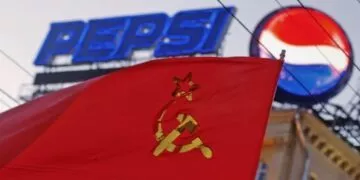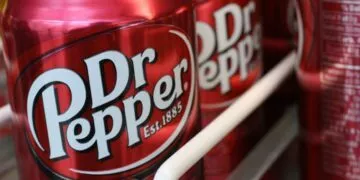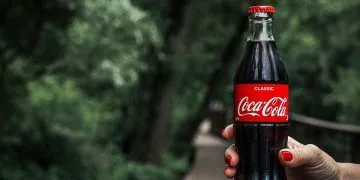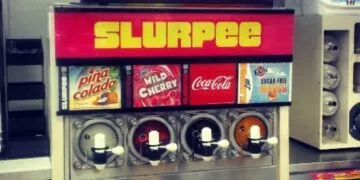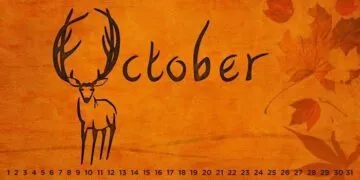Have you ever been drenched with Gatorade after a sports victory? If so, you’re part of a long-standing tradition that started in the NFL in the 1980s!
But did you know that Gatorade also used to sell chewing gum and has even been the subject of a lawsuit?
Read on to discover ten surprising facts about this popular sports drink.
Scientists at the University of Florida invented Gatorade.

A team of scientists led by Dr. Robert Cade at the University of Florida discovered that the university’s football players were losing a lot of electrolytes and sugar during games.
This resulted in poor athletic performance and unexplained weight loss.
The scientists were able to solve the athletes’ problems, and on October 2, 1965, Gatorade was invented as a sports drink that would help quench thirst better than water.
That drink was Gatorade, named after the university’s own Florida Gators football team, which contains electrolytes and carbohydrates to replace the ones lost when sweating.
Gatorade was acquired by Pepsi in 2001.
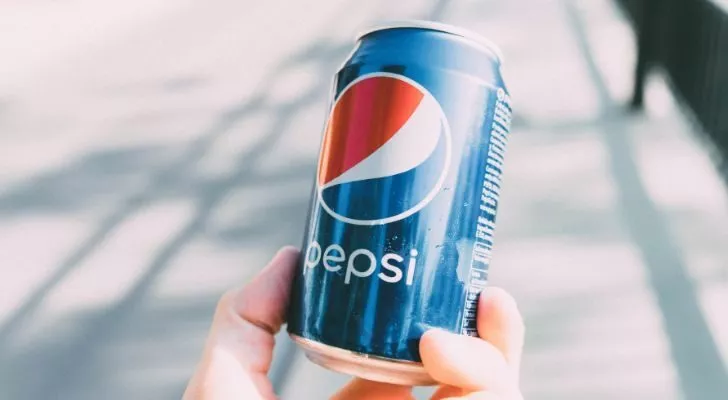
The Quaker Oats Company came to own Gatorade in 1983 after it acquired Stokely-Van Camp, the company that first manufactured the drink commercially.
Then, in 2001, Pepsi bought the Quaker Oats Company for $13.8 billion, adding Gatorade to its portfolio of brands.
However, Gatorade would’ve been in the hands of Pepsi’s rival company. That is if Coca-Cola didn’t back out from the $16 billion acquisition deal for Quaker Oats in 2000.
The brand pays royalties to Gatorade’s inventors.
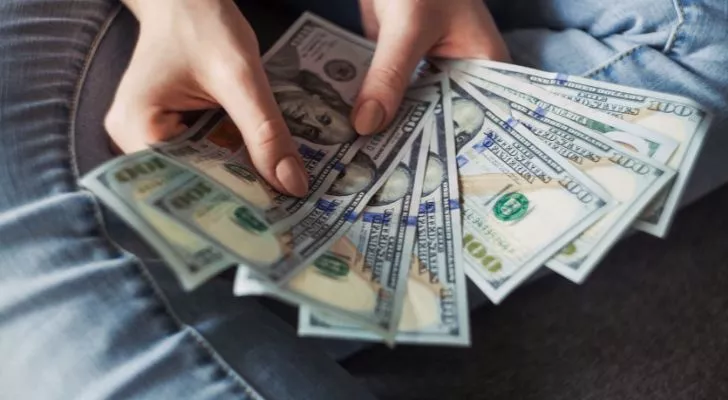
Whenever you buy Gatorade products, Gatorade pays royalties to the Gatorade Trust, the group of scientists that invented the sports drink. The Gatorade Trust doesn’t get to keep all the money, though.
In 1971 the University of Florida filed a lawsuit against the makers of Gatorade to get 100% of the royalties on the basis that Gatorade used their mascot’s name and was made at the university.
That was nowhere enough to get them all the royalty money, though, so the university only got 20%.
Michael Jordan was the first endorser of Gatorade.
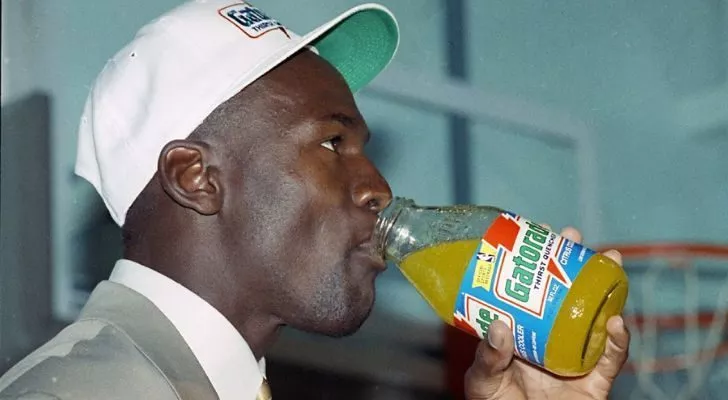
In 1991, Gatorade got a young Michael Jordan to be the first Gatorade endorser. The endorsement lasted for ten years and was worth $13.5 million!
A year after the deal, Gatorade released the Be Like Mike commercial, which eventually became one of the most memorable sports commercials.
Jordan was the only endorser of the brand during those ten years. But after that, Gatorade started to endorse numerous athletes from different sports like golf, soccer, and tennis – some examples are Tiger Woods, Lionel Messi, and Serena Williams.
The brand paid 300k for a misleading message on water.
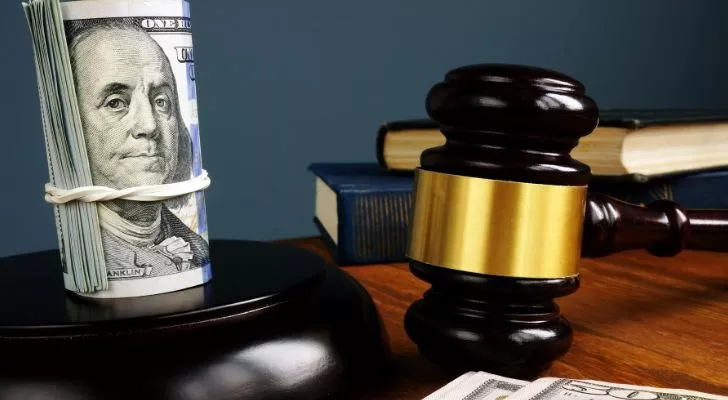
In 2012 Gatorade launched Bolt, a side-scrolling mobile game wherein you play as Usain Bolt, collecting coins throughout the game.
The game begins by telling players to avoid water to keep their performance level high. Bolt runs faster and increases his fuel meter when he hits a Gatorade icon, then slows down and decreases his fuel meter when he hits a water droplet icon.
Gatorade was ultimately sued in 2017 for its misleading statements and was forced to pay $300,000 to the California Attorney General’s Office.
Gatorade rebranded as “G.”
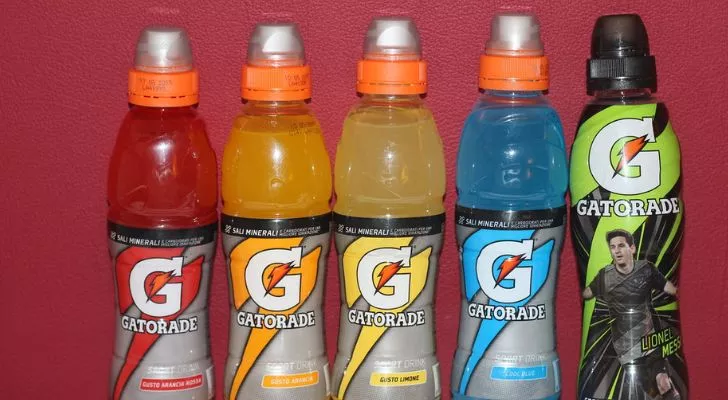
Rebranding can often be a double-edged sword; changing up the name and appearance of your products can either boost sales considerably or cause them to decline and confuse existing customers.
Gatorade’s sales were dropping in 2009, so they attempted to rebrand as “G.” Unfortunately, the rebrand was a flop, and sales continued to plummet.
However, Gatorade decided to push through and launched the “G Series” a year after, introducing three products to be consumed before, during, and after playing sport.
Gatorade used to sell chewing gum.
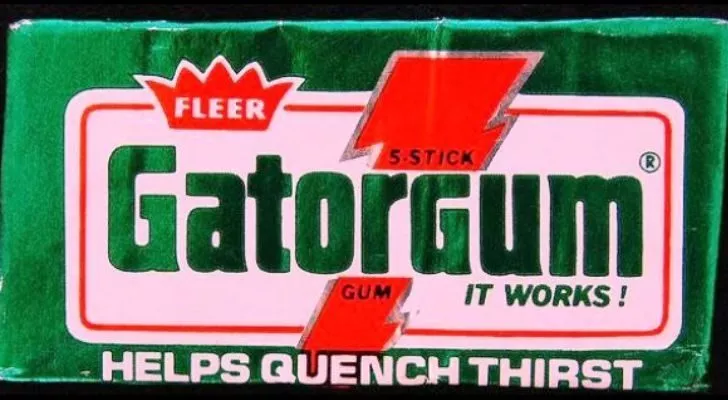
Sports drinks, that’s what most people, maybe even you, would think about Gatorade. But they also used to sell Gatorgum during the 1970s as an extra way to quench your thirst.
When asked on Twitter if Gatorade has plans to bring it back, Gatorade said it’s now called “Quench Gum” and is made by Mueller Sports.
Even though they discontinued Gatorgum, Gatorade still diversified its products. Some examples of Gatorade’s non-beverage products are energy gummies, protein bars, and sweat patches – yes, you read that right, sweat patches!
Gatorade showers have become a tradition for celebrating victory in sports.
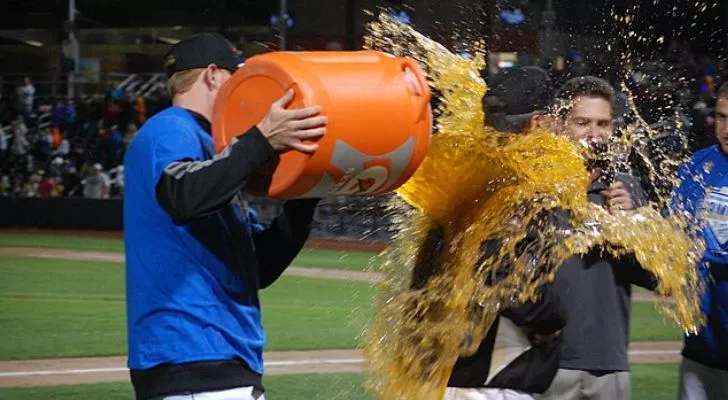
A Gatorade shower is basically pouring a bucket of Gatorade on someone, typically a coach, after a victory.
It started in the NFL when Jim Burt of the New York Giants poured a bucket of Gatorade on his coach, Bill Parcells, in 1984 after winning against the Washington Redskins.
It wasn’t an act of celebration, though. Instead, he did it simply because his coach had nagged him all game! Not only did this kind of celebration make the winning team happy, but also Gatorade due to the free advertising they got.
Gatorade had a pop-up store in New York.
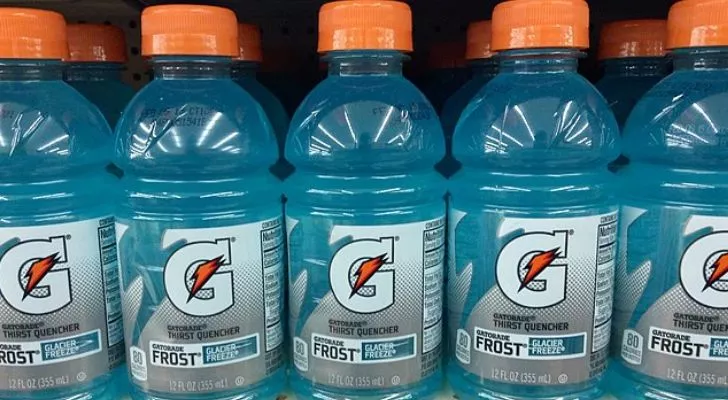
Gatorade products are often seen in convenience stores and groceries. But for two days in January 2018, Gatorade could be found at a pop-up store in New York City.
People who entered the pop-up store were given iPads to see information about the numerous Gatorade products through augmented reality.
Then, after completing the tour, they were given access to a secret room. It had different areas wherein you could work out, get free personalized clothes, and have portrait photoshoots.
Some countries banned Gatorade.

Until 2013, Japan and several European countries prohibited selling Gatorade as it contained brominated vegetable oil (BVO), a compound linked to memory loss and infertility.
That, and the fact that BVO is also used as a fire retardant, caused the ingredient to have a negative image, which made Gatorade replace it with a safe alternative.
Despite removing BVO, Gatorade is still not sold in Austria and Norway since its sports drinks contain certain food dyes that are banned in both countries.
Gatorade might be a household name when it comes to sports drinks, but there’s more to this brand than meets the eye. From Michael Jordan’s endorsement deal to the tradition of Gatorade showers, there are plenty of surprising facts to explore.
And who knows? You might just impress your friends with your newfound knowledge the next time you crack open a bottle of Gatorade.


